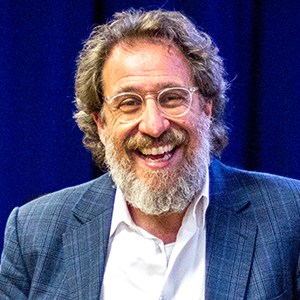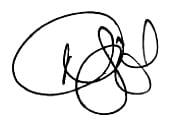by Nigel Savage
November 15, 2018 | 8 Kislev 5779
 Dear all,
Dear all,
In the last two weeks we’ve had the shivahs for the people who were murdered in Pittsburgh, the post-Pittsburgh Shabbat, and then the midterms. As I write, California is on fire and a record number of lives have been lost. The Gaza/Israel border is tense and there too lives have been lost. And for historical context we’ve commemorated a century since the end of the Great War and 80 years since Kristallnacht, essentially the start of the next one.
So it feels like everything is accelerating and many things are deteriorating. A fine time to enter the month of Kislev, this time of light in the darkness.
I want to write especially today about Hazon itself – our failures and challenges, our vitality and our necessity, against this tumultuous backdrop.
In a factual sense there is, as ever, much going on. We delivered our largest-ever Israel Ride (registration is now open for 2019, and remarkably 120 people have already registered. We sold out in the spring last year, so if you’re thinking about joining us, sign up soon!), plus a separate tour of Israel’s intentional communities for our Hakhel program. We’re planning for the launch of the Hazon Seal of Sustainability in Chicago. We have the strongest ever cohort of JOFEE Fellows delivering programs around the country. Our Fall Adamahniks are completing their work. In Philadelphia we partnered with the Federation for a successful food summit this past Sunday. In Denver Sue Salinger is getting started, deepening the Hazon partnership with Ekar Farm. We’re working on the schedule for our Sustainable Israel Impact Investing Tour in May, which promises to be one of the strongest trips we’ve ever done.
This is good – much of this is very good.
And much of this is also a direct or indirect antidote to what is happening in the world.
By our persistent actions we’re trying to rally the Jewish community to take environmental sustainability seriously. Whatever we do will be far too late for the people who died or lost their homes in Paradise. But are we as a community really willing to go on in a general sense as if it is business as usual? Hazon’s work in general, and the Hazon Seal in particular, are aimed at integrating sustainability into the fabric of Jewish life. A generation of Teva educators whose application forms cite their participation in Teva as kids is testament to the long-run impact of just one part of our work. At the Israel Ride I saw yet again that the students and alumni of the Arava Institute are the best hope I know of for building peaceful relationships between Israelis and Palestinians. (A lovely piece in the NYT today gives a further strong sense of this.)
Hazon’s work is important. I continue to believe that we need to touch people’s lives directly, and strengthen this field, and continue to bring fresh thought to critical challenges. The importance and necessity of this is not about Hazon itself; it’s about the kind of Jewish community we believe in, and the extent that we do or do not walk the walk.
And yet… I write bluntly, with a sense that we have failed and that others have too.
On our side we – I – have failed to sufficiently explain how and why we do the things that we do. Key stakeholders in Hazon have believed in this work, but in a complex world we literally can’t do what we do – and what we want to do – if an insufficient number of funders are unwilling to pay for it. The strategic planning process that has now begun will have to address some tough issues. I remain grateful to all of Hazon’s stakeholders – staff, board, individual funders, foundation staff, and trustees. But I remain frustrated that we have several thousand legacy Jewish institutions, many with useful endowments or reserves even as their members and attendees shrink and age in size. And on the other side – just one Hazon. One Wilderness Torah. One Urban Adamah. The number of JOFEE programs has grown every single year since 2000. The number of participants has grown strongly. The ideas that we have together developed have gone from being obscure to central to Jewish life.
And yet each year we have to raise the funds to pay for the work that we do. Adamahniks pay only a small proportion of the true cost of the program. People love being at Isabella Freedman, but a significant number of our participants, especially younger ones, receive discounts and scholarships to be able to attend.
So… if you believe in this work, as we head into Thanksgiving and Giving Tuesday, into Chanukah and Christmas, I really do ask you to give a gift to Hazon, or a further gift, or perhaps make a warm introduction to someone who might be able to support our work and whom we don’t know.
Right now we’re also trying to raise specific funds to buy a piece of land contiguous with Isabella Freedman which is critical to our future. If you’d like to support that in a significant way – or you have appreciated stock that you’d like to give to us – please be in touch directly.
If you’re interested in joining us for our 2019 Sustainable Israel Tour, focused on impact investing, registration is now open. This trip builds on the highly successful tours we’ve delivered in the last few years, and adds impact investing into the mix. It’s going to be a remarkable group of companies and non-profits that we’ll visit, plus some very senior special guests. The Tour is going to be capped at 36 participants and, like both this year’s Sustainable Israel Tour and this year’s Israel Ride, we expect it to sell out. Early registration (with an early registration discount) runs through December 1st and if you’d like to join us you’re warmly welcome.
Shabbat Shalom, Happy Chanukah,

Nigel
